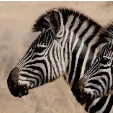“The internal struggle is something we all face at some point in our lives, though it rarely takes place in the same setting as the American West. But isn’t it true that we are all constantly battling between who we want to be and who we truly are? Perhaps the answer doesn’t always lie in the land beneath our feet, but within what we keep inside.”

There is something deeply captivating about the American West, but it’s not just the barren landscapes or the endless prairies that draw us in. It’s the internal struggle, the clash between unrelenting nature and the shadows carried by the characters. In both Yellowstone (especially its final season, released in 2024) and Ransom Canyon, we see a battle not only with the world around them but with their own souls. In Yellowstone, the terrain becomes a stage where the fiercest battle is fought within each character. It’s a tale of personal desolation and redemption, a study of souls trapped in a never-ending cycle of tough decisions, with only solitude as their comfort. Ransom Canyon, on the other hand, explores how, in a more intimate setting, the emotional war is not only fought inside the characters but also between them, weaving a web of relationships that, though filled with secrets, allow for a chance at redemption through community.
The Individual Introspection in Yellowstone
“In Yellowstone, the landscape becomes a mirror, but doesn’t that happen to us too? The harsh nature often reflects our own internal storms, forcing us to face them. How do we respond to that pressure? Do we become the hero or the villain of our own story?”
In Yellowstone, the land becomes a faithful reflection of the internal conflicts of its inhabitants. The vastness of the landscape is not just the beauty that wraps the narrative, but a space where characters are forced to face their choices with no place to hide. John Dutton isn’t merely fighting for the land; he’s fighting for something much deeper: the need to reconcile with a past full of betrayals, sacrifices, and, above all, loneliness. The violence here isn’t just a physical act, it’s the manifestation of an internal struggle that knows no rest. Characters, whether family or enemies, are trapped in a cycle from which they cannot escape. In this survival landscape, solitary reflection becomes a form of resistance, almost like a last attempt to find redemption, even if that means losing oneself in the process.
The environment, raw and unforgiving, is the perfect backdrop for painful and constant introspection. The Duttons’ decisions, no matter how tough or moral, come from a solitary place, from a space where ethics aren’t found outside but deep within the soul of each individual.

"You don’t get to be a leader by being weak. You get there by surviving." — John Dutton
Community and Relationships in Ransom Canyon
“The land isn’t just a reflection of personal tensions, but of the social web that connects all the characters. In the end, the question remains: Is isolation the only way to find redemption, or can it also be found in community, no matter how imperfect it may be?”
On the other hand, Ransom Canyon presents a different kind of struggle, one more tied to human relationships and the weight of shared history within a community. Here, the land isn’t just a reflection of personal tensions, but of the social web that connects all the characters. Secrets, betrayals, and alliances are the pulse of this story. While its characters also wrestle with internal dilemmas, it’s the dynamics between them that mark the true conflict. They are not alone in their struggle. They face not only their own ghosts but also the expectations and judgments of others.
The difference lies in how the characters of Ransom Canyon don’t have the same freedom as those in Yellowstone to decide their fate in isolation. The community plays a real role in their decisions, and it’s in the interactions between individuals where the true emotional battle takes place. Sometimes, the sense of belonging is what keeps the characters afloat, while other times, the burden of an unresolved past becomes their heaviest weight.

"Sometimes the only way to move forward is to let go of what you thought was forever." — Ransom Canyon
Morality and the Complexity of the Characters
Moral decisions are another key piece in both series, but each handles them differently. In Yellowstone, the moral struggle is deeply personal. Each character is faced with a version of themselves they often don’t recognize. What might seem like a heroic act on the surface could be the reflection of a much darker motivation. Morality here is complex; it’s not presented in black and white, but in all the shades of gray possible. And it’s in that ambiguity where the tragedy is built.
Meanwhile, in Ransom Canyon, morality is influenced by interpersonal relationships. Though the characters also struggle with tough choices, the answers are not only found within them, but in how they are seen by their community. Social expectations, collective judgment, and the weight of the shared past intertwine with the characters’ psychology. In the end, morality is not only something personal, but something that’s constantly negotiated with others.
Both series take us to a wild place, but the terrain in which their characters struggle is radically different. Yellowstone is a study of deeply solitary characters, where decisions are made in brutal isolation, almost as a curse, while Ransom Canyon offers a more nuanced view of how human connections, no matter how complex and painful, can be both the anchor and the burden that shapes the lives of its inhabitants.
What unites these two series is the way they explore human nature in its rawest form. While Yellowstone reveals the internal struggle we all face, Ransom Canyon shows us how those struggles can, or cannot, find resolution in the web of human relationships that surround us.












































View replies 0
View replies 0
View replies 0